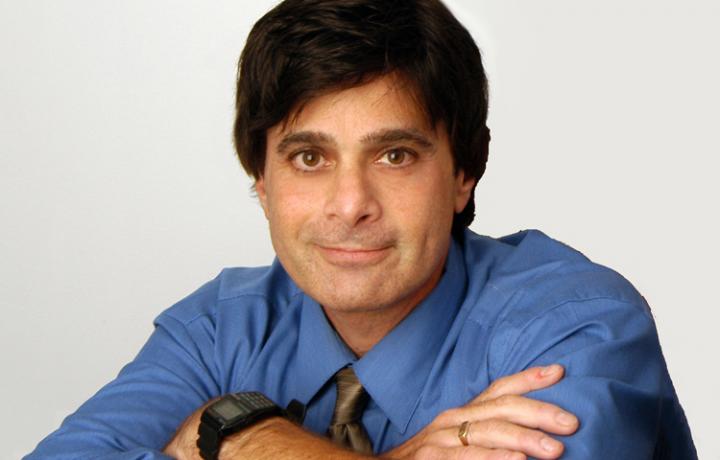Renowned stem cell researcher recognized by his peers for seminal contributions to regenerative medicine

Credit: Sanford Burnham Prebys Medical Discovery Institute
LA JOLLA, CALIF. – Feb. 23, 2021 – The American Institute for Medical and Biological Engineering (AIMBE) has elected to its College of Fellows Evan Y. Snyder, M.D., Ph.D., professor and founding director of the Center for Stem Cells and Regenerative Medicine at Sanford Burnham Prebys Medical Discovery Institute. Snyder was nominated, reviewed, and elected by his peers and members of the College of Fellows for his seminal contributions to regenerative medicine. He will be inducted to AIMBE during a formal ceremony held on March 26, 2021.
“I am honored to join this incredible group of accomplished and distinguished engineering and medical school professionals,” says Snyder. “My goal has always been to help regenerative medicine become a reality for people living with conditions that elude current therapies–but in a way that is consistent with fundamental biological principles. It is gratifying to be recognized for this approach and for this work.”
AIMBE’s College of Fellows is an elite group comprised of the top 2% of medical and biological engineers in the country, including research directors, professors, innovators, engineering and medical school chairs and entrepreneurs. AIMBE Fellows have been awarded the Nobel Prize, the Presidential Medal of Science and the Presidential Medal of Technology and Innovation, and many are also members of the National Academy of Engineering, the National Academy of Medicine, and the National Academy of Sciences.
Snyder is regarded as one of the “fathers of the stem cell field” and has served two terms as chair of the FDA’s Cellular, Tissue and Gene Therapy Advisory Committee. He first isolated human neural stem cells in 1998, a landmark discovery for the stem cell field. His lab continues to study the basic biology and therapeutic potential of neural stem cells for disorders such as Parkinson’s disease, amyotrophic lateral sclerosis (ALS), brain cancer, neuropsychiatric conditions and perinatal hypoxic-ischemic brain injury, a condition that affects newborns and may cause cerebral palsy and cognitive disability. Snyder is also collaborating with Sandra Leibel, M.D., an assistant professor at UC San Diego, to use “mini lungs” created from stem cells to determine why some people with COVID-19 fare worse than others.
Snyder began his career as a physician-scientist at Harvard Medical School and Boston Children’s Hospital. He earned his medical degree and doctorate in neuroscience from the University of Pennsylvania. He has authored more than 300 publications over the course of his career.
###
About the American Institute for Medical and Biological Engineering (AIMBE)
AIMBE’s mission is to recognize excellence in, and advocate for, the fields of medical and biological engineering in order to advance society. Since 1991, AIMBE’s College of Fellows has led the way for technological growth and advancement in the fields of medical and biological engineering. AIMBE Fellows have helped revolutionize medicine and related fields to enhance and extend the lives of people all over the world. They have successfully advocated for public policies that have enabled researchers and business-makers to further the interests of engineers, teachers, scientists, clinical practitioners, and ultimately, patients. Learn more about AIMBE by visiting https:/
About Sanford Burnham Prebys Medical Discovery Institute
Sanford Burnham Prebys is a preeminent, independent biomedical research institute dedicated to understanding human biology and disease and advancing scientific discoveries to profoundly impact human health. For more than 40 years, our research has produced breakthroughs in cancer, neuroscience, immunology and children’s diseases, and is anchored by our NCI-designated Cancer Center and advanced drug discovery capabilities. For more information, visit us at SBPdiscovery.org or on Facebook at facebook.com/SBPdiscovery and on Twitter @SBPdiscovery.
Media Contact
Susan Gammon, Ph.D.
[email protected]




